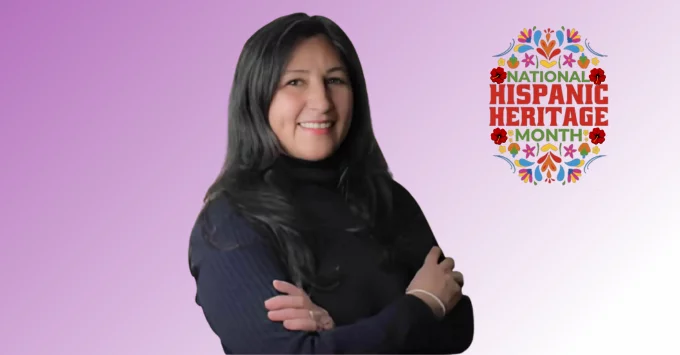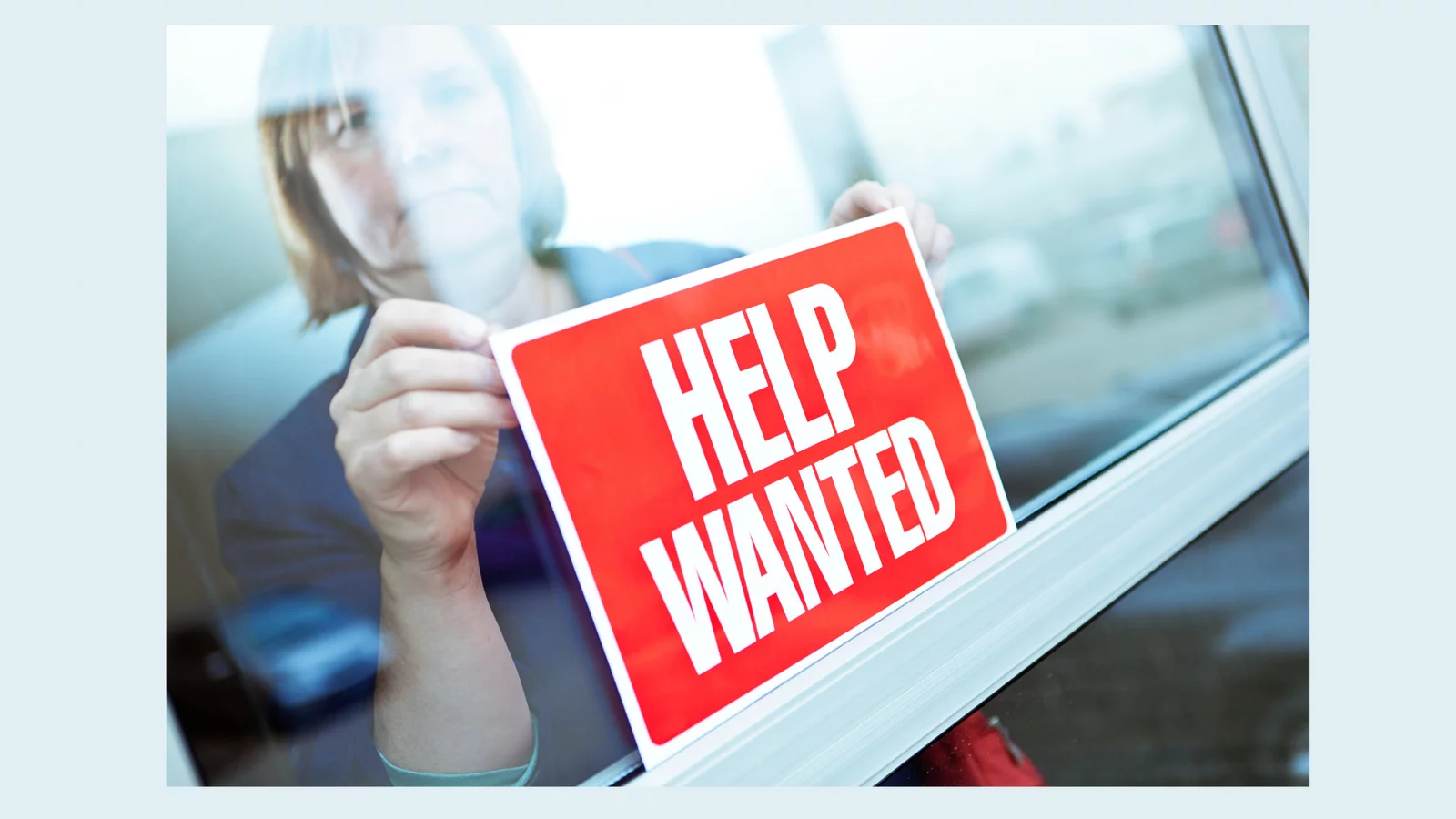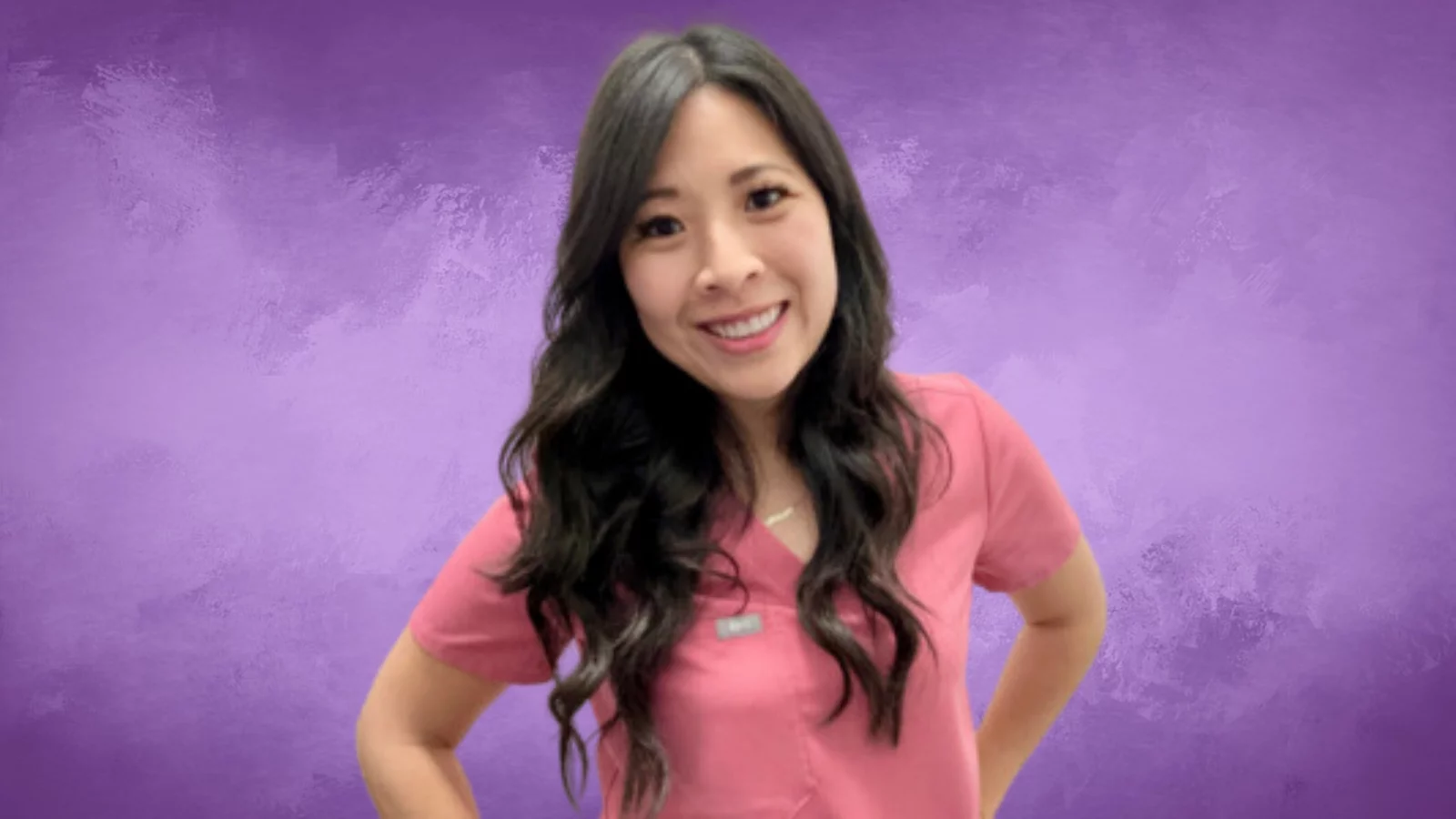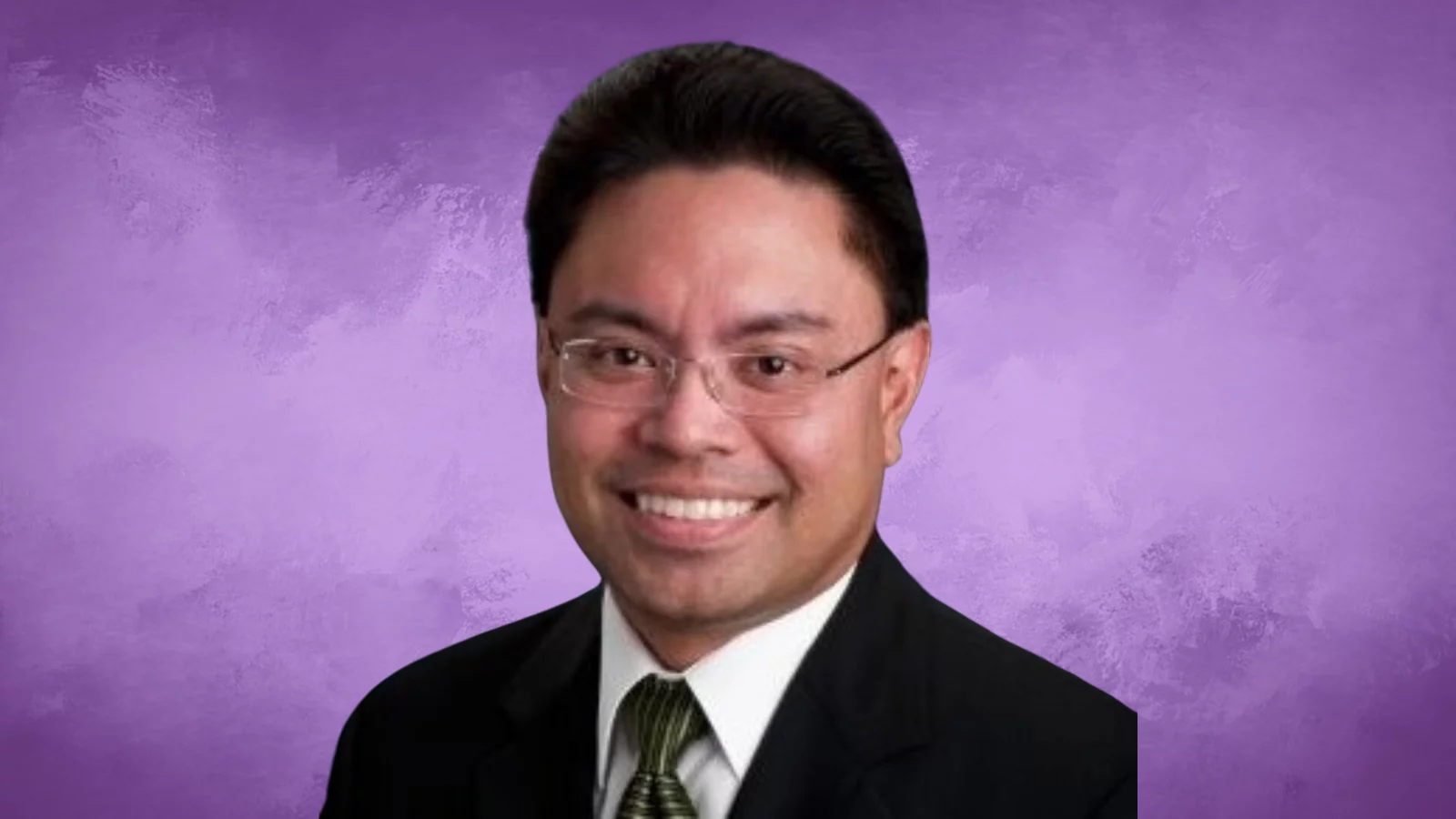By Kate Ryan and Bronwyn Barrera, MBA, ADHA Staff
September 27, 2023
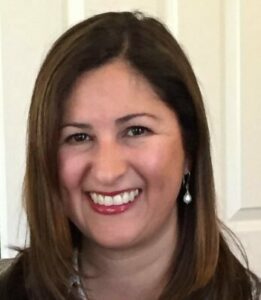
Carmen Negron-Dupee, BSFCS, RDH
Growing up, Carmen Negron-Dupee, BSFCS, RDH, was not a fan of going to the dentist. Born and raised in the mountainous rural town of Orocovis in the heart of the island of Puerto Rico, Carmen grew up in an environment that did not prioritize oral health.
Carmen’s mother worked hard to provide for her family, but taking care of their teeth wasn’t always a priority.
“My brothers and I came from a humble background. We would brush our teeth, but going to the dentist was just not common unless we had an issue to address,” she explains. “In most Latino cultures preventive dental visits were uncommon. Often people would only go to the dentist if they were suffering a problem that involved pain and swelling. There were and still are a lot of misconceptions about dental care that oral pain=dental visit and as a result, dentist=painful experience. The emphasis was on extractions. People could not afford treatment options like fillings or root canals. An extraction was cheaper and final, and that was as true in the 1970s as it is today.”
Carmen visited a dentist for the first time when she was 3 years old, suffering from early childhood caries. While the dentist gave her teeth necessary treatment, she was left anxious and fearful from the terrifying experience at such a tender age, with a damaged perception of dental visits.
“I still remember the trauma,” she recalls. “This dentist didn’t have good chairside manners, and I bit him out of fear. They decided to numb me, and several staff had to hold me down as the dentist approached me with a needle. I remember screaming and crying, which was a terrible first-time experience. It made me hate visiting the dentist after that. I didn’t go back for years until I had even more caries.”
It wasn’t until her teen years that Carmen began to understand how dentistry was supposed to be about helping people.
“My uncle, Dr. Marcelina Naron, was a dentist who specialized in periodontics. He offered me a summer job working in his office. I moved in with my aunt to shorten the commute, but I still had to take three buses every day to his office in San Juan.”
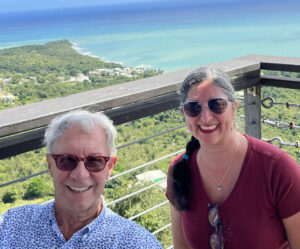
Carmen and her now-retired uncle Dr. Marcelino Negron Berrios, 2022.
Carmen’s exposure to oral health care in her uncle’s practice changed her view of dentistry and dental hygiene. Not only did she start receiving regular dental care, but she also observed the passion her uncle had for his profession and the care he gave his patients. Upon completing high school, Carmen decided to pursue a career that offered the same kind of passion, care and satisfaction and explored professions that combined science and helping people.
After enrolling at the University of Puerto Rico at Mayagüez on the western coast of the island, Carmen struggled to adapt to the collegiate workload and to hold down three part-time jobs. But she eventually found her footing and declared her major in Family and Consumer Science.
“The major was very community service-oriented, which I loved. But, after I graduated, I hit another wall. I had a degree that I had a lot of passion for, but I couldn’t find a job.”
After two years of odd jobs and upon the recommendation of her uncle, Carmen enrolled in an accelerated dental hygiene program at the University of Puerto Rico Medical Sciences Campus. Upon graduating, she worked in a periodontal practice – not with her uncle this time. She enjoyed the work but was unsure of how bright her future was in her home and culture.
“At that time, dental hygiene had not been fully embraced in Puerto Rico. It was mainly dental assistants and dentists. Dental hygienists were only required in specialized offices. Even today in Puerto Rico, despite dental insurance options and a public health emphasis on prevention and education, there are still many people with dental phobia, biases and fears that are often passed down through generations. It’s a reality that we are still battling.”
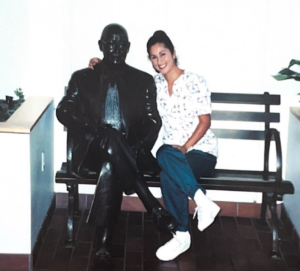
At Tufts Univ. for the NERB exam, 2002
Carmen’s mother had relocated to Boston, Massachusetts, so Carmen began to save money and made a plan to join her in the states.
“I started studying for my national boards. This wasn’t customary in Puerto Rico, which had its own boards. But my future was on the mainland, so I needed to be ready to work there.”
After Carmen passed her national exam and the NERB, she moved to Massachusetts in 2002. She began practicing and also joined the ADHA. It wasn’t until she moved to Vermont in 2007 that she began taking on bigger roles in the organization.
“I moved to the mainland, started working, got married, moved again to Vermont and had a baby. My life went through a lot of changes in just a few years. By 2015, I got to a point where my son was starting school and I craved an identity within my profession.”
With a colleague’s encouragement, Carmen began putting her lifelong love of service to work and became treasurer of her local ADHA component.
“It was a great experience. I took that decision very seriously because I believe strongly that professionals who truly care about the future of their profession should get involved in their association. So, I learned the basics, I researched nonprofits, and I figured out what that position meant in my hands.”
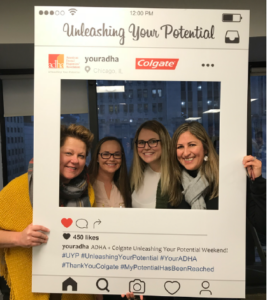
Carmen and colleagues at the ADHA offices in Chicago, November 2018.
Since those days, Carmen has become a seasoned leader for the ADHA, serving as alternate delegate, president-elect and then president of the VDHA. She currently serves as District I Director. Carmen enjoys leadership and hopes her story inspires other Latinx dental hygienists to create a space for themselves in this industry.
“Each person’s situation and priorities are different. For me being an ADHA member and advocating for the profession is a priority as long as I continue practicing dental hygiene, in any setting. This profession has given me a lot of satisfaction in so many ways, and I am proud and grateful for it, and will continue to give back.”
Although young Carmen started out with an adverse relationship to dental care, she came to embrace oral health, built a life around it and has spent her career helping and caring for patients, teaching new dental hygienists, and giving back to the profession she fell in love with.
During National Hispanic Heritage Month, the ADHA is proud to recognize and celebrate the history, culture and contributions of our members and leaders of Hispanic heritage. Thank you for sharing your story, Carmen, and for helping to shape the dental hygiene profession.
__________________________________
Carmen Negron-Dupee, BSFCS, RDH, is a part-time adjunct clinical professor at Vermont State University in the Vermont Technical College Dental Hygiene Program and sits on the ADHA Board of Directors as District I Director.
Interview by Kate Ryan, article by Kate Ryan and Bronwyn Barrera, MBA. Kate is a communications specialist and Bronwyn is the Director in the ADHA Marketing & Communications Department. They can be reached at [email protected].
